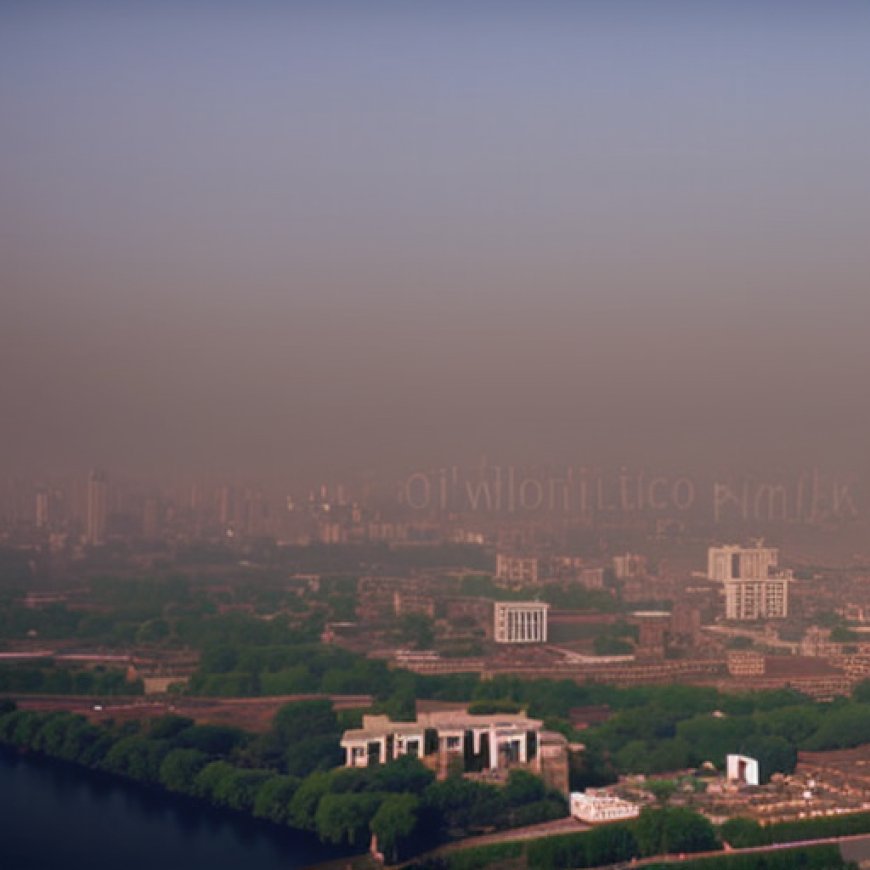Delhi’s air quality in April improved significantly, best for month in six years
Delhi's air quality in April improved significantly, best for month in six years India Today


Delhi’s Air Quality Improves Significantly in April 2024

Delhi experienced a significant improvement in air quality during April 2024, as per official data.
The city made a record of the maximum number of ‘Good to Moderate’ air quality days as compared to the corresponding period of the last six years, starting from 2018 (excluding 2020 due to the lockdown enforced as a response to the Covid-19 pandemic).
The national capital registered only seven days with an Air Quality Index (AQI) exceeding 200 in April 2024. This marks a noteworthy reduction when compared to previous few years.
advertisement
In addition to this, the average AQI during April 2024 was considerably low, making the month the second-best in terms of air quality since 2018.
This improvement may largely be credited to efficient air pollution control measures taken by the government, along with favourable weather conditions, the data suggested.
Sustainable Development Goals (SDGs)
- Goal 3: Good Health and Well-being
- Goal 11: Sustainable Cities and Communities
- Goal 13: Climate Action
An AQI between 0 and 50 is considered ‘Good’, 51 and 100 ‘Satisfactory’, 101 and 200 ‘Moderate’, 201 and 300 ‘Poor’, 301 and 400 ‘Very Poor’, and 401 and 500 is considered ‘Severe’.
Furthermore, April 2024 marked a significant reduction in daily average concentrations of particulate matter, PM2.5 and PM10, as compared to the corresponding periods in the previous years.
Particulate Matter is made up of tiny pollutants in the air that can seep into the lungs, causing serious health problems.
PM2.5 refers to particles that have a diameter less than 2.5 micrometres, and PM10 to particles with a diameter less than 10 micrometres.
Thus, a reduction in their levels significantly contributes to healthier and cleaner air.
Must Watch
SDGs, Targets, and Indicators
1. Which SDGs are addressed or connected to the issues highlighted in the article?
- SDG 3: Good Health and Well-being
- SDG 11: Sustainable Cities and Communities
- SDG 13: Climate Action
2. What specific targets under those SDGs can be identified based on the article’s content?
- SDG 3.9: By 2030, substantially reduce the number of deaths and illnesses from hazardous chemicals and air, water, and soil pollution and contamination.
- SDG 11.6: By 2030, reduce the adverse per capita environmental impact of cities, including by paying special attention to air quality and municipal and other waste management.
- SDG 13.1: Strengthen resilience and adaptive capacity to climate-related hazards and natural disasters in all countries.
3. Are there any indicators mentioned or implied in the article that can be used to measure progress towards the identified targets?
- Air Quality Index (AQI): The article mentions that Delhi experienced a significant improvement in air quality, with a record number of ‘Good to Moderate’ air quality days. The AQI is a widely used indicator to measure air pollution levels.
- Average AQI: The article states that the average AQI during April 2024 was considerably low, indicating improved air quality.
- Reduction in daily average concentrations of particulate matter (PM2.5 and PM10): The article highlights a significant reduction in the levels of PM2.5 and PM10, which are indicators of air pollution.
SDGs, Targets, and Indicators
| SDGs | Targets | Indicators |
|---|---|---|
| SDG 3: Good Health and Well-being | 3.9: By 2030, substantially reduce the number of deaths and illnesses from hazardous chemicals and air, water, and soil pollution and contamination. | Air Quality Index (AQI) |
| SDG 11: Sustainable Cities and Communities | 11.6: By 2030, reduce the adverse per capita environmental impact of cities, including by paying special attention to air quality and municipal and other waste management. | Air Quality Index (AQI) |
| SDG 13: Climate Action | 13.1: Strengthen resilience and adaptive capacity to climate-related hazards and natural disasters in all countries. | Air Quality Index (AQI), Reduction in daily average concentrations of particulate matter (PM2.5 and PM10) |
Copyright: Dive into this article, curated with care by SDG Investors Inc. Our advanced AI technology searches through vast amounts of data to spotlight how we are all moving forward with the Sustainable Development Goals. While we own the rights to this content, we invite you to share it to help spread knowledge and spark action on the SDGs.
Fuente: indiatoday.in

Join us, as fellow seekers of change, on a transformative journey at https://sdgtalks.ai/welcome, where you can become a member and actively contribute to shaping a brighter future.







